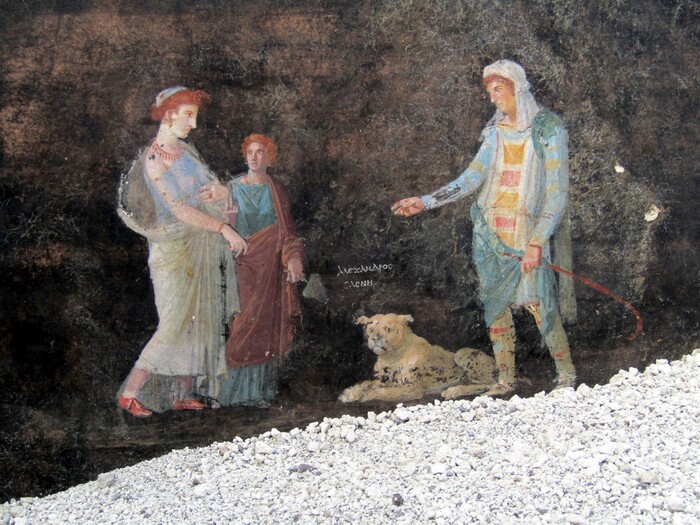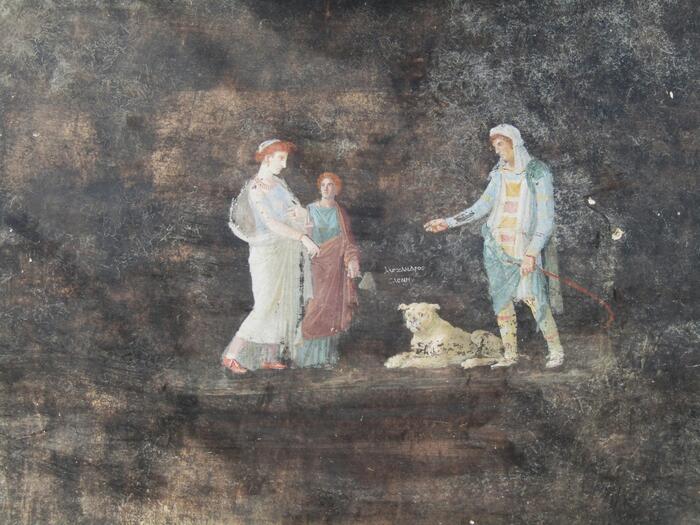One of the most fascinating questions in ancient history is the interaction between the artistic and religious manifestations of antiquity and the various substances in the natural world that cause altered states of consciousness.
To designate this type of plant with a sacred aura, whose presence has been attested from hunter-gatherer societies to the first urban civilizations, the Hellenist Carl AP Ruck, together with the mycologist RG Wasson and other researchers, coined, in the 1970s of the last century, the neologism “entheogens”, alluding —in parallel to the Greek “enthusiasm”— to the idea of “carrying a god inside”.
They, along with the father of LSD, Albert Hofmann, were the authors of a controversial book,
The Road to Eleusis .
, which proposed the ritual use of ergot, a fungus with hallucinogenic properties, as one of the keys to understanding the functioning of the Greek mysteries.
The idea was not new, since other anthropologists and historians of religions, from the schools of Cambridge, Vienna or Chicago, had proposed probing, behind some myths, images and patrimonial stories, traces and remains of the use of the so-called "plants of the gods".
The incidence in the arts and culture of visions, trances and ecstatic experiences caused by these substances has been generally accepted since the last century in the case of prehistoric peoples and the ancient Orient.
However, it was somewhat more difficult to apply it to the supposed "fathers of the West", Greeks and Romans, whose myths and rites would also be full of references to these sacred plants.
Perhaps an inveterate Eurocentric prejudice prevented the free application of some historiographical or anthropological categories studied in “other peoples” —cannibalism, shamanism, ecstasy, sorcery or the use of hallucinogens…— to the classical world that, even today, is still seen as a precedent for our “ European "rationality" of white and straight forms, and, ultimately, of the logical spirit of the West.
Sacred drugs in Antiquity
, by Carlos G. Wagner.
This book comes to culminate a 40-year trajectory of research by the author on this matter that, although it began in Phoenician studies, has spread to the Greco-Roman world, as well as the ancient Orient and Egypt.
It covers, with a comparative and synthetic spirit, all the historical vicissitudes of the ancient world, from the dawn of fluvial civilizations to the symbiosis of Christianity with Greco-Roman cultural structures, in a complete historical-cultural tour that deals from the knowledge that the ancients had about these plants —with testimonies from archaeobotany combined with literary and iconographic sources— to their use in art, religion and society in different latitudes.
What must be pondered above all is the caution and impartiality that the author adopts before the phenomenon of drugs in antiquity.
Verifying its use beyond any doubt, he collects and examines the available evidence, the various hermeneutic positions and the most plausible hypotheses.
Therefore, let no one expect a
New Age
treatise on a natural religion based on drugs, an anachronistic apology or a kind of polyvalent and simplistic explanation for all the mysteries of antiquity, which is what, many times, was reproached to the authors who studied the “entheogens”.
He does not shy away, however, from the most controversial issues, such as, for example, the shamanic hypothesis —and other anthropology labels, in favor of thaumaturges and
medicine-men .
— or the idea that drug use has been able to inspire artistic creation and religious intuition since prehistoric times.
They can be very useful, in their proper measure, also for the classical world.
To do this, in any case, East and West, prehistory and antiquity, have to be contrasted.
Surprising, for example, the alternative analysis of the great texts, the
Gilgamesh
or the Homeric poems, with possible allusions to ethnobotany, or the suggestive treatment of sacred mythical-vegetal, oracular, shamanic or visionary symbology, in art.
In this sense, the possible entheogenic background of the hero's combat against monsters like Medusa and Humbaba stands out, or the appearances of magical herbs in Greek, German or Celtic myths compared to those of the Indo-Iranian religion.
Always advancing prudently, Wagner also addresses classic problems, such as those of Eleusis or the Pythia of Delphi, and offers a considered state of the art, between what is certain and what is hypothetical.
Likewise, he dedicates a long epigraph to the Dionysian religion and its ecstatic cult in comparison with other ancient gods of vegetation: gods that are plants, or their fruits,
These elements served, along with the religion that housed them, for the domination and prestige of the elites through stories, rituals and images.
In short, an exciting book that systematizes current knowledge about the role played by these substances, also with a view to what current neuroscience says.
The subtlety in nuances of this question is especially notable in attention to political and social history: these elements served, along with the religion that housed them, for the domination and prestige of the elites through stories, rituals and images. .
This panorama of more than four millennia, in short, shows the omnipresence for the history of religions, anthropology, archaeology, philology and the arts of the so-called entheogens in various cultural experiences of deep depth, from the Mesopotamian or Indo-Iranian religion even the Greek, with its sanctuaries and mysteries.
Myths, visions, sorceries, oracles and trances can be read,
Find it in your bookstore
You can follow BABELIA on
and
, or sign up here to receive
our weekly newsletter
.
Subscribe to continue reading
Read without limits
Keep reading
I'm already a subscriber

/cloudfront-eu-central-1.images.arcpublishing.com/prisa/SQ5HBSV7GBHHNLOH6CWQWRVS44.jpg)






